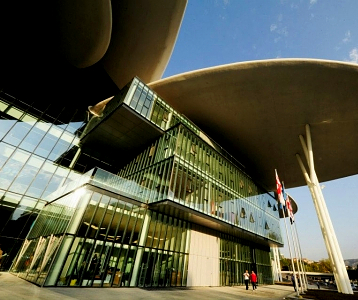
TBILISI, DFWatch–Meskhetians who are being repatriated to Georgia are facing obstacles when trying to obtain a residency permit. Now human rights groups are defending their cases in the courts.
Iunis Arifov has been living in Akhaltsikhe for the last eight years. He is one of the Meskhetians, who decided to come back to their forefathers’ land. However, he is not able to become a Georgian citizen, as he has Azerbaijani citizenship, and has problems renouncing it. As a repatriate, he will get Georgian citizenship as soon as he renounces his current citizenship, but the two-year period to do it has expired and neither him nor his family managed to do it.
Only his father is a Georgian citizen, but this did not cause any problems for the Arifovs until September 2014, when the new immigration law came into force. Now Arifov and his family has had to get permanent residency permits in order to be allowed to stay in Georgia.
But their applications were refused on the grounds that they pose a threat to state security. They are not the only ones. According to the head of a regional NGO ‘Toleranti’ from Samtskhe-Javakheti Tsira Meskhishvili, there are about 140 Meskhetians facing the same problems. In her words, ‘almost eighty percent of applicants for residency permit received the same negative answer’.
Transparency International (TI) notes that it is common practise in Georgia to deny residency permit on the grounds of alleged threat to the state security. The Counterintelligence Agency of the Ministry of Internal Affairs (MIA) is responsible for making a background check and give their conclusion with classified reasoning to the Public Services Development Agency (PSDA), which makes the final decision. But the MIA’s conclusions should be taken as a recommendation only, while in reality the PSDA follow them in their final decision automatically, TI writes.
Iunis Arifov and his family’s case was taken to court by Toleranti and the Human Rights House. Their lawyer Eka Kobesashvili pointed out that the Arifovs have been living in Georgia for eight years, have land and property and have no criminal record, so they should not be considered as a threat to the state. She added that not to give them permanent residency permits would mean to break up their family, as Iunis’s father is a Georgian citizen.
Meskhetians, also known as Meskhetian Turks, originate from the Samtskhe-Javakheti region. They are Muslims, and their native language is an east Anatolian Turkish dialect. Their entire population, over 100,000 people, was deported during Stalin to Central Asia. Meskhetians, unlike other deported people such as Crimean Tatars, Ingushs and Chechens, were not allowed to return to their home after Stalin’s death.
In 1999, Georgia joined the Council of Europe and the government committed to repatriate those Meskhetians who were willing to come back.
In 2007, a law on repatriation was passed, allowing them to return to their historic homeland. It gave Meskhetians two years to submit their documents and get a repatriate status.
According to ECMI, as of March 2, 2015, there were 1,533 persons with repatriate status and 320 Meskhetians had been granted citizenship.

